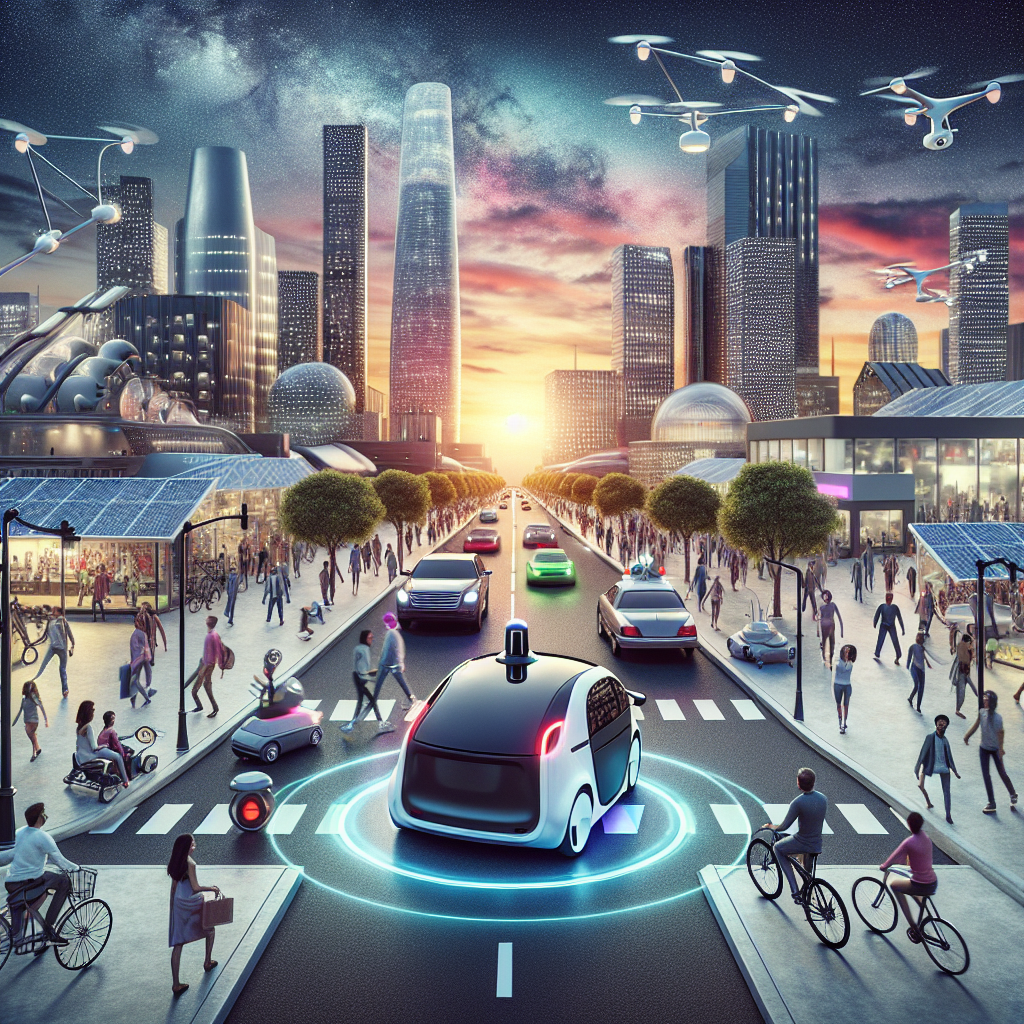Driving Towards the Future: The Impact of Autonomous Vehicles on Society
In recent years, the rapid advancement of technology has brought about numerous changes in our daily lives. One of the most anticipated developments in the field of transportation is the rise of autonomous vehicles. Also known as self-driving cars, these vehicles have the potential to revolutionize the way we travel and have a profound impact on society as a whole.
Autonomous vehicles use a combination of sensors, cameras, and artificial intelligence to navigate roads and make decisions without human intervention. Proponents of this technology believe that it can greatly improve road safety, reduce traffic congestion, and provide more efficient transportation options for individuals with disabilities or limited mobility.
One of the key benefits of autonomous vehicles is their potential to greatly reduce the number of accidents on the road. According to the National Highway Traffic Safety Administration, 94% of accidents are caused by human error. By removing human drivers from the equation, autonomous vehicles have the potential to drastically decrease the number of accidents and save countless lives.
Additionally, autonomous vehicles have the potential to make transportation more efficient and convenient. With the ability to communicate with each other and traffic infrastructure, self-driving cars can navigate roads more efficiently, reducing traffic congestion and emissions. This could lead to shorter commute times and a more streamlined transportation system.
Furthermore, autonomous vehicles have the potential to provide greater access to transportation for individuals who are unable to drive themselves, such as the elderly or individuals with disabilities. By giving these individuals the ability to travel independently, autonomous vehicles have the potential to greatly improve their quality of life and provide greater opportunities for social interaction and mobility.
However, the rise of autonomous vehicles also raises important questions and challenges for society. One of the main concerns is the potential impact on the job market, particularly for individuals who work in the transportation industry. As autonomous vehicles become more prevalent, there is the potential for a significant number of jobs, such as truck drivers and taxi drivers, to be displaced.
Additionally, there are questions about the ethical implications of autonomous vehicles, particularly in situations where a self-driving car must make a decision that could result in harm to individuals. For example, if a self-driving car is faced with the choice of hitting a pedestrian or swerving and potentially harming the passenger, how should it make that decision? These ethical dilemmas will need to be addressed as autonomous vehicles become more widespread.
In conclusion, the rise of autonomous vehicles has the potential to greatly impact society in numerous ways. While there are many benefits to this technology, there are also important questions and challenges that must be addressed. As we move towards a future with self-driving cars, it is essential that we carefully consider the implications and work towards creating a transportation system that is safe, efficient, and equitable for all.


